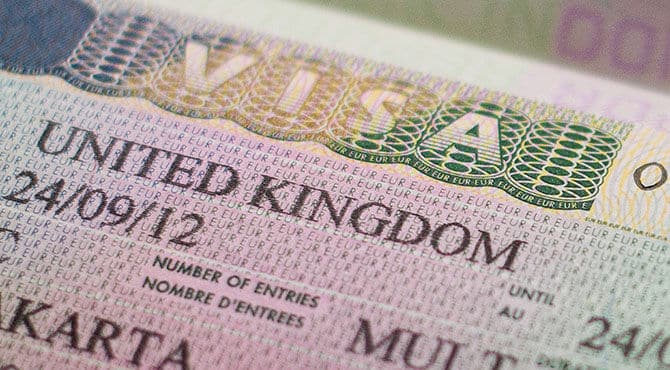How Can British Expats Qualify As Non-Resident part 1 – that will be the topic of today’s article.
For any questions, or if you are looking to invest as an expat, you can contact me using this form, or via advice@adamfayed.com
Introduction
There are a few ways in which British expats can qualify as non-residents. One way is to be outside the UK for at least six months out of the tax year. You must also have no significant ties to the UK, such as a home or family members living there.
While it is important to know your immigration status, it is also important to understand your tax liabilities as an expat. You may be able to qualify for tax reliefs and exemptions that can help reduce your tax bill. For more information, speak to an accountant or tax specialist.

However, it is important to note that the rules around tax residency are complex and constantly changing, so it is best to speak to an expert if you are unsure about your status. In fact, even if you believe you are a non-resident, it is always advisable to file a UK tax return, as you may be liable for some taxes depending on your income and other factors.
Have you been surfing the web to get a glimpse of what new tax laws could affect you as a British expat? You’re not alone. The number of UK citizens living abroad has more than doubled in the last two decades, and with Brexit on the horizon, many are choosing to move before the UK leaves the EU.
In this article, we’ll take a look at what it means to be a non-resident taxpayer in the UK, how you can go about proving your status, how British expats can qualify as non-residents, and many others, to mention a few.
What Is a Non-Resident Taxpayer?
A non-resident taxpayer is not liable to UK tax on their income and capital gains from global sources. To qualify as a non-resident, you must be physically outside the UK for at least six months out of the tax year. You must also have no significant ties to the UK, such as a home or family members living there.
Overview of British Laws for Residents/Non-Residents
There are several British laws that residents and non-residents must abide by. In fact, there are so many that it can be difficult to know them all. This article will provide an overview of five of the most important British laws for residents and non-residents.
The Law against Hooliganism

The law against hooliganism is one of the most important British laws. It prohibits any violent or disorderly behavior at sporting events. This law is in place to protect both residents and non-residents. Also, under this law, police can arrest anyone drunk and disorderly.
The Road Traffic Act 1988
The Road Traffic Act 1988 is a law that sets out the rules for driving on British roads. It includes speed limits, using handheld phones while driving, and drinking driving. This law is important for both residents and non-residents, as it helps keep everyone safe on the road.
The Data Protection Act 1998

The Data Protection Act 1998 is a law that protects people’s data. It sets out rules for how personal data can be collected, used, and shared. This law is important for residents and non-residents, as it helps keep everyone’s data safe.
The Equality Act 2010
The Equality Act 2010 is a law that protects people from discrimination. It sets out rules for how people should be treated equally regardless of their race, religion, gender, or sexual orientation. This law is important for both residents and non-residents, as it helps to ensure that everyone is treated fairly.
The Human Rights Act 1998

The Human Rights Act 1998 is a law that protects people’s human rights. It sets out the rights that everyone in the UK is entitled to, such as the right to freedom of speech and the right to a fair trial. This law is important for both residents and non-residents, as it helps to ensure that everyone is treated fairly and has their human rights protected.
British Requirements to Qualify For Non-Resident
As a British citizen, there are several requirements you must meet to qualify for non-resident status. Here are the 10 most important.
- You must be physically outside the United Kingdom for at least 185 days in 12 months.
- You must have no significant ties to the UK, such as a job, a home, or strong family ties.
- You must have permanent residence in another country
- You must have income or assets outside of the UK that is enough to support yourself financially
- You must not be claiming any benefits from the UK government
- You must have a valid passport and be able to prove your residency in another country
- You must be able to show that you have made attempts to renounce your British citizenship
- You must be of good character and have no criminal convictions
- You must have the intention of remaining outside of the UK permanently
- You must at least be 18 years old.
Types of Visas Available For British Citizens
When traveling or moving to a new country, one of the most important things to consider is your visa status. Different countries have different visa requirements, and it’s important to make sure you meet the requirements for the country you’re traveling to or moving to.

For British citizens, there are several different types of visas available. Here are five of the most common types of visas for British citizens:
The Standard Visitor Visa
The standard visitor visa is the most common type of visa, and it allows British citizens to visit the United States for business or pleasure for up to six months. This visa can be obtained relatively easily and does not require a lot of paperwork.
The Business Visa
The business visa is for British citizens who want to conduct business in the United States. This visa allows you to stay in the country for up to one year, and it can be renewed if necessary. To obtain this visa, you will need to prove that you are indeed conducting business in the United States.
The Marriage Visa
The marriage visa is for British citizens who want to marry in the United States. This visa allows you to stay in the country for up to six months, and it can be renewed if necessary. To obtain this visa, you will need to prove that you are getting married in the United States.
The Student Visa
The student visa is for British citizens who want to study in the United States. This visa allows you to stay in the country for up to five years, and it can be renewed if necessary. To obtain this visa, you will need to prove that you are studying at an accredited school in the United States.
The Working Holiday Visa
The working holiday visa is for British citizens who want to work in the United States. This visa allows you to stay in the country for up to one year, and it can be renewed if necessary. To obtain this visa, you will need to prove that you are working in the United States.
5 Ways British Qualify As Non-Residents
Did you know that there are several ways British nationals can qualify as non-residents? Of course, that’s why we’re keen to give you the best advice on how to make the process as smooth as possible. Without further ado, here are some ways British nationals can qualify as non-residents.
1) By Having a Foreign Domicile
This is a legal term used to describe a person’s primary residence. If you have your main home (or domicile) outside of the UK, you will be considered a non-resident for tax purposes. More so, if you can prove that you have no intention of returning to the UK, you’re likely to be considered a non-resident.

2) By Having a Limited Connection to the UK
If you have a very limited connection to the UK, you may also be a non-resident. This could be due to not living in the UK for most of the year, having a home outside of the UK, or not being employed in the UK. Meanwhile, if you’re a student, the amount of time you spend in the UK is also considered.
3) By Being Self-Employed
If you work for yourself, you may be considered a non-resident for tax purposes. This is because you’re not employed by anyone else and are therefore not subject to UK tax laws. Of course, other factors will be considered, such as the amount of time you spend working in the UK.
4) By Being a Pensioner
If you’re retired and have stopped working, you may be considered a non-resident for tax purposes. This is because you no longer connect to the UK labor market. That being said, there are some exceptions to this rule, so it’s best to speak to an accountant or tax specialist.
5) By Leaving Your Assets in the UK
If you leave your assets in the UK (such as property or shares), you may be considered a non-resident for tax purposes. This is because you still have a connection to the UK, even if you’re not living here. Again, there are some exceptions to this rule, so it’s best to speak to an accountant or tax specialist.
Pained by financial indecision? Want to invest with Adam?

Adam is an internationally recognised author on financial matters, with over 373.5 million answers views on Quora.com and a widely sold book on Amazon



